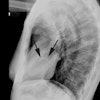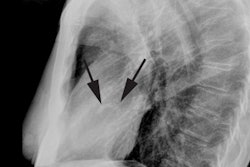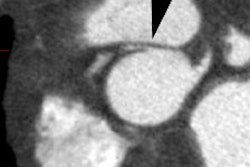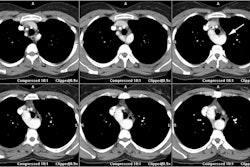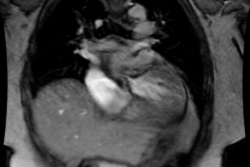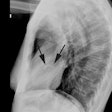Shaw LJ, Raggi P, Schisterman E, Berman DS, Callister TQ.
PURPOSE: To develop risk-adjusted multivariable models that included risk factors and coronary calcium scores determined with electron-beam computed tomography (CT) in asymptomatic patients for the prediction of all-cause mortality. MATERIALS AND METHODS: We followed up a cohort of 10,377 asymptomatic individuals undergoing cardiac risk factor evaluation and coronary calcium screening with electron-beam CT. Multivariable Cox proportional hazards models were developed to predict all-cause mortality. Risk-adjusted models incorporated traditional risk factors for coronary disease and coronary calcium scores. RESULTS: Cardiac risk factors such as family history of coronary disease (69%), hypercholesterolemia (62%), hypertension (44%), smoking (40%), and diabetes (9%) were prevalent. The frequency of coronary calcium scores was 57%, 20%, 14%, 6%, and 3% for scores of 10 or less, 11-100, 101-400, 401-1,000, and greater than 1,000, respectively. During a mean follow-up of 5.0 years +/- 0.0086 (standard error of the mean), the death rate was 2.4%. In a risk-adjusted model (model chi2 = 388.2, P <.001), coronary calcium was an independent predictor of mortality (P <.001). Risk-adjusted relative risk values for coronary calcium were 1.64, 1.74, 2.54, and 4.03 for scores of 11-100, 101-400, 401-1,000, and greater than 1,000, respectively (P <.001 for all values), as compared with that for a score of 10 or less. Five-year risk-adjusted survival was 99.0% for a calcium score of 10 or less and 95.0% for a score of greater than 1,000 (P <.001). With a receiver operating characteristic curve, the concordance index increased from 0.72 for cardiac risk factors alone to 0.78 (P <.001) when the calcium score was added to a multivariable model for prediction of death. CONCLUSION: This large observational data series shows that coronary calcium provides independent incremental information in addition to traditional risk factors in the prediction of all-cause mortality.
